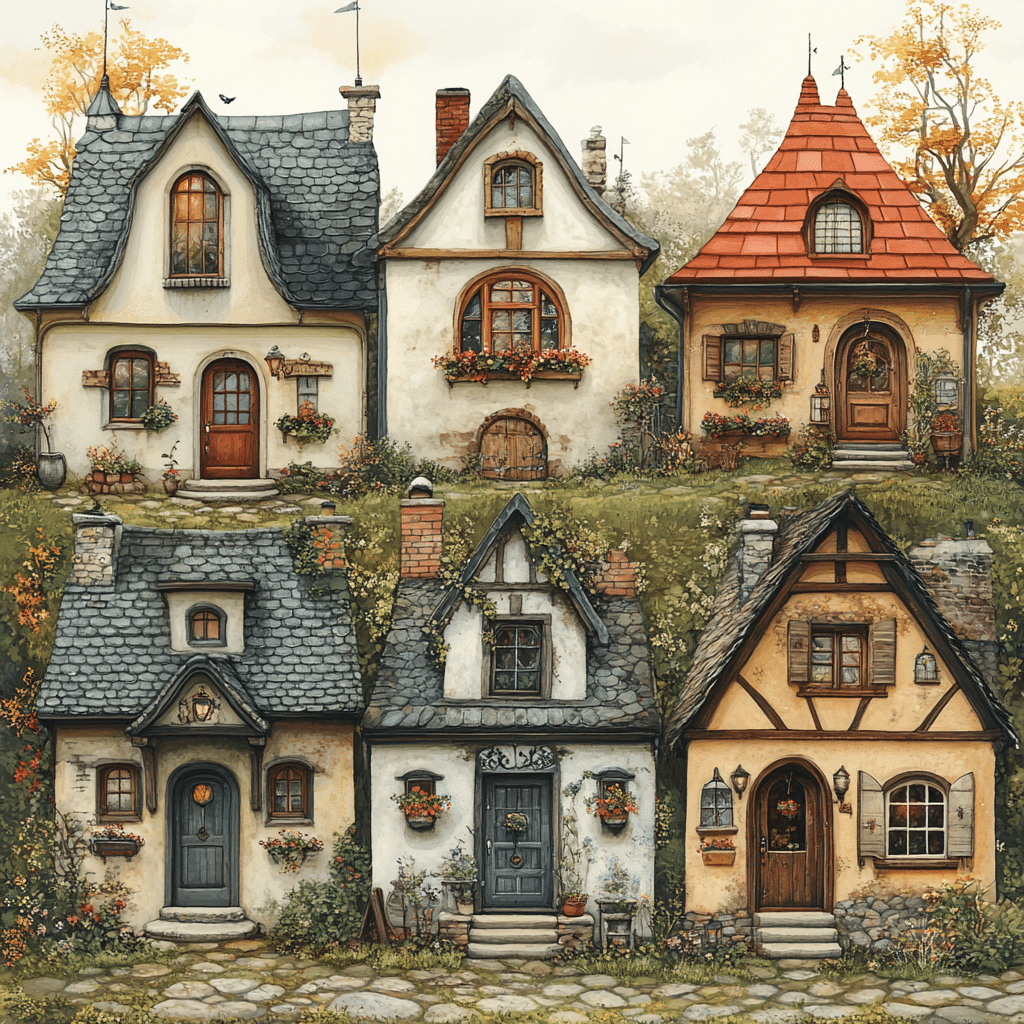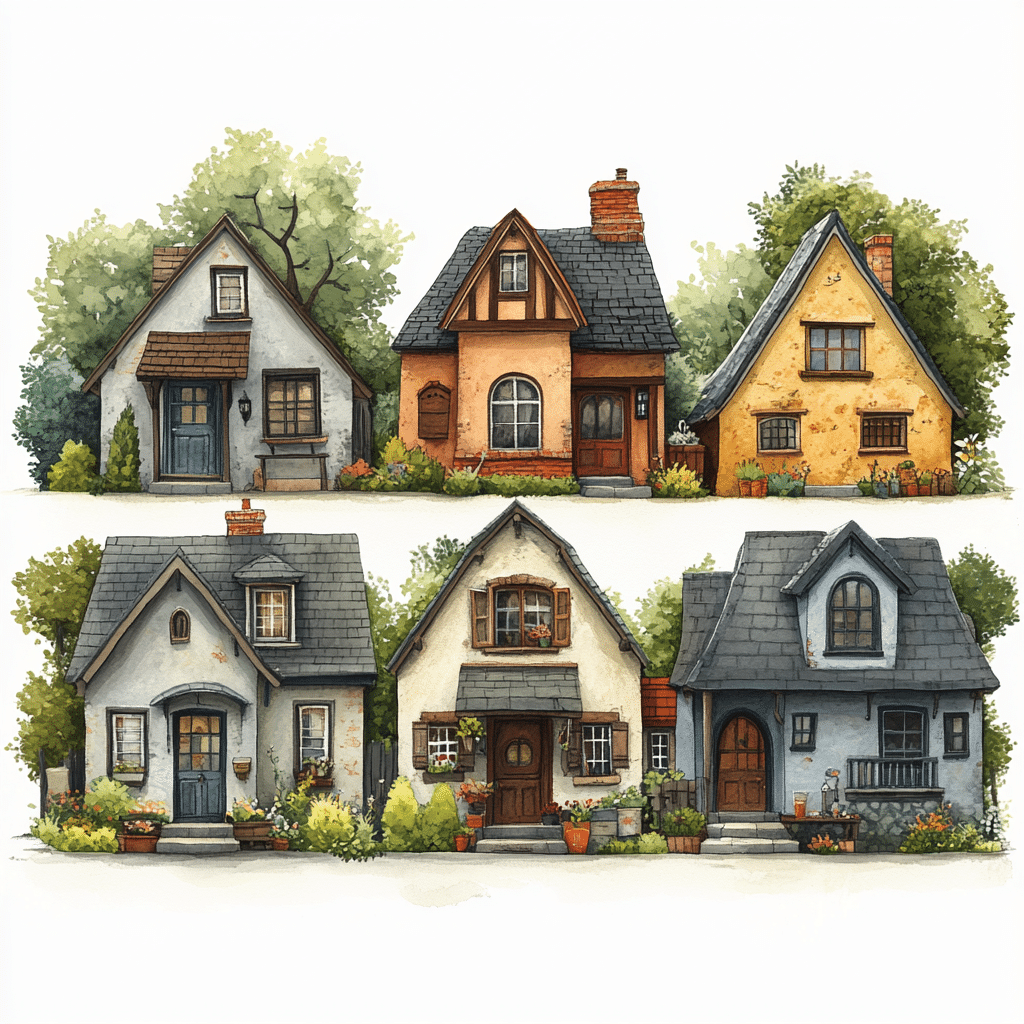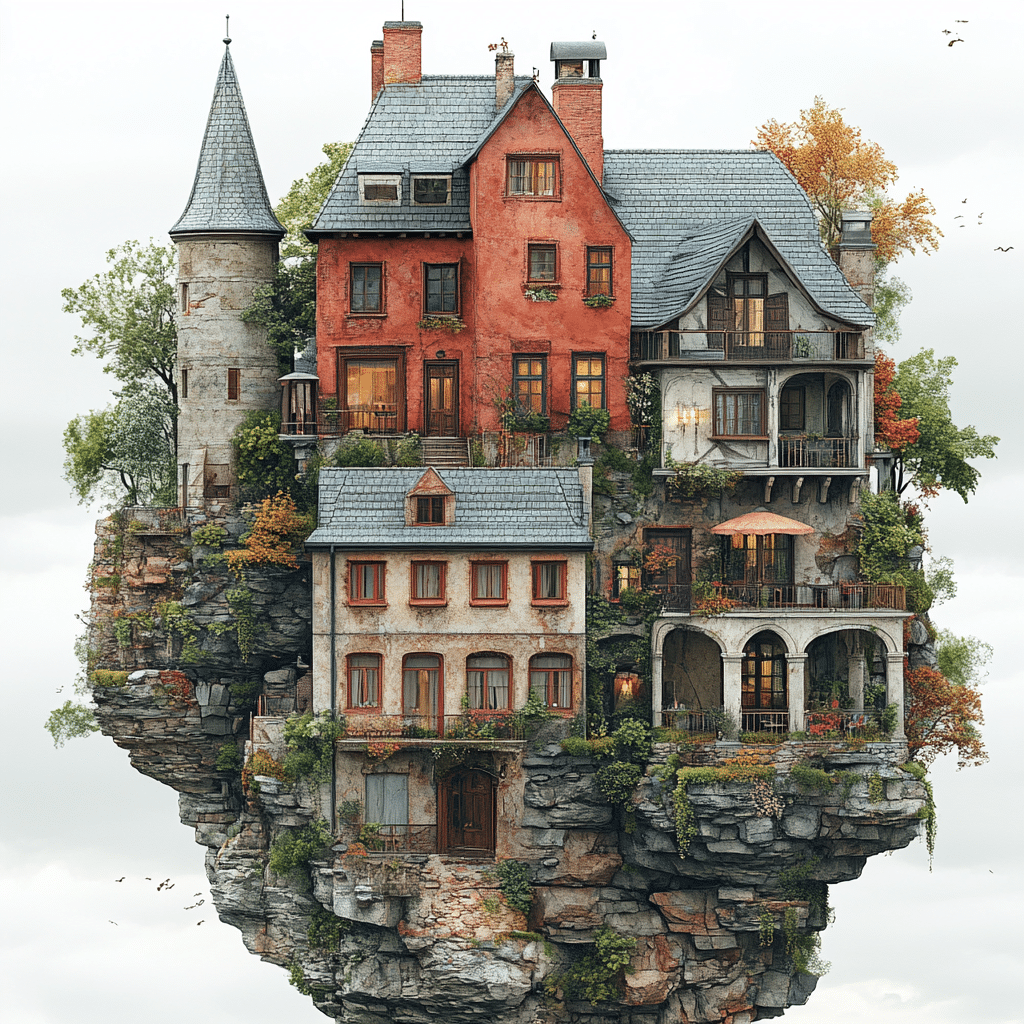Home is where the heart is, and indeed, there’s a fascinating diversity in the kinds of houses people call home. Exploring different kinds of houses helps us understand the vast spectrum of architecture that cradles the human spirit. From grand urban lofts to quaint country cottages, each type of home blends culture, environment, and economic factors. As we delve into the nuances of various styles and structures, we’ll uncover how our homes reflect not just our tastes, but also the rich tapestry of human history and innovation. With Mortgage Rater, you’ll find insight into mortgage rates, helping you finance your dream home—be it a chic apartment or a pastoral farmhouse.

Different Types of Housing: An Overview
The journey through different types of housing begins by examining the endless array offered by the world’s landscapes. Urban settings boast high-rise apartments, exemplifying a blend of convenience and efficient space usage. Meanwhile, rural areas offer spacious farmhouses, celebrating nature and simplicity. Each residence speaks volumes about its local culture and the solutions it provides against economic backgrounds and ecological settings. Whether navigating the bustling streets of a metropolis or the tranquil paths of the countryside, you’ll find that each locale’s housing style possesses a story of evolution shaped by necessity and innovation.
Housing variations are driven not just by climate or resources but also by social preferences, showing how flexible we are as a species. Urban condominium units serve those who prefer a fast-paced lifestyle, while suburban single-family homes provide the comfort of space and community. Every housing type has its origins, speaking to the needs and possibilities contemporaneous with its conception, guided by mortgage rate history through the years.

Different Types of Homes: Traditional vs. Contemporary
The comparison between old and new architectural styles reveals interesting insights into our preferred living environments. Traditional homes like the Cape Cod represent the quintessential American home, renowned for their symmetrical and practical structures. In contrast, contemporary homes are lauded for their sleek designs and open-concept living areas—a hallmark of modern architecture as championed by figures like Frank Lloyd Wright. This juxtaposition showcases not only an aesthetic evolution from functionality to minimalism but also a shift in how we perceive comfort and style in our living spaces.
Differences between these styles also reflect changes in building technology and lifestyle aspirations. While traditional homes often focus on craftsmanship and coziness, modern homes aim to maximize natural light and connectivity. The evolution of these styles highlights broader cultural shifts, and understanding them better equips prospective homeowners to make informed choices in alignment with current mortgage rate trends.
| Type of House | Key Features | Price Range (USD) | Benefits |
| Single-Family Home | Detached, one unit, private yard | $300,000 – $500,000 | Privacy, outdoor space, ideal for families |
| Condominium | Individual units within a building, shared amenities | $200,000 – $600,000 | Lower maintenance, access to amenities, often urban |
| Townhouse | Multi-floor unit, shared walls, may have a small yard | $250,000 – $450,000 | Balanced space and maintenance, community feel |
| Duplex | Two units in one building, can be owned or rented out | $350,000 – $700,000 | Rental income potential, cost-sharing opportunities |
| Bungalow | Single-story, typically modest size, often with a porch | $150,000 – $300,000 | Accessibility, easy maintenance, cozy living |
| Cottage | Small, quaint, usually in rural or cozy settings | $100,000 – $250,000 | Charm, often vacation properties, serene environments |
| Ranch House | Single-story, spread out design, attached garage | $200,000 – $400,000 | Accessibility, spacious feel, easy expansion |
| Victorian Home | Distinct architecture, ornate details, multi-story | $500,000 – $1,000,000+ | Historical charm, unique aesthetics, spacious interiors |
| Contemporary | Modern design, eco-friendly features, open floor plan | $400,000 – $800,000 | Modern amenities, energy efficiency, sleek design |
| Tiny House | Compact space, often mobile, minimalist living | $30,000 – $100,000 | Low cost, minimal maintenance, sustainable living |
Exploring Different House Styles Across Countries
Our world is a tapestry of diverse house styles, each birthed from and adapted to local culture and climate. Consider the Minka homes of Japan, which are celebrated for their balance with nature and utility of natural materials like wood and paper. These homes echo the Zen principles of simplicity and tranquility. In contrast, Italy’s trulli—quaint limestone structures with conical roofs found in Puglia—exhibit an ornate and colorful artistry born from necessity and resourcefulness.
House styles worldwide represent a dialogue between human creativity and environmental challenges. Viking longhouses were crafted from available timber and turf, tailored specifically for harsh Nordic climates. Indeed, different house styles across continents echo the myriad ways humans adapt to their surroundings, offering a window into civilizations past and present.
Unique Examples of Different House Styles
These homes are not just residences; they are a testament to thoughtful design and ingenuity. As you explore your options, whether leaning traditional or modern, understanding unique property examples can inspire your dream home vision.
Comparing Different Styles of Houses: Urban vs. Rural
Urban areas teem with skyscrapers and apartment complexes, symbols of vibrant city life and endless opportunity. Burj Khalifa’s residences in Dubai epitomize luxury urban living with unparalleled views and amenities for residents. Meanwhile, rural homes, like secluded mountain cabins, symbolize peace and a return to nature unaccompanied by the hustle and bustle of city life.
Living environments vastly influence personal lifestyle—urban settings often prioritize accessibility and dynamic interactions, while rural locales offer solitude and self-sufficiency. Understanding these distinctions helps potential buyers choose an environment that aligns with their values and personal aspirations.
Different Types of Houses for Unique Needs
Different types of houses often cater to unique lifestyle and climatic challenges. Tiny houses, an innovation gaining momentum through the Tiny Home Movement, represent a drive toward minimalist living and sustainability. Conversely, rammed earth homes are perfect for those preferring eco-friendly solutions with superior thermal properties ideal for more arid regions.
Such choices reflect growing awareness and responsiveness to individual needs. Be it the efficiency of a compact home or the environmental harmony of earth-stabilized houses, diverse housing options speak directly to the varied needs of individuals in differing climates or life stages.
Future Prospects: Sustainable and Smart Homes
In an era where tech and sustainability are paramount, a new wave of housing innovations is taking center stage. Futuristic homes like the Tesla Tiny House exemplify solar innovation, shifting the way we think about energy consumption in homes. Integrating smart technology with eco-friendly designs represents a forward-thinking approach to sustainable living environments.
These trends not only challenge traditional housing models but also enrich them, offering features and efficiencies unattainable in older designs. Embracing these advances positions homeowners for a future where housing is increasingly responsive and resource-conscious, setting the stage for what the new normal in home building could be.
Paving the Way for the Next Generation of Living Spaces
The diversity in different kinds of houses speaks to our evolving world by mirroring technological advancement and changing lifestyles. Balancing innovation with tradition will be critical for future progress. Acknowledging and preserving diverse architectural styles allows us to faithfully reflect upon our collective histories while setting the stage for embracing green practices and high-tech housing solutions. These homes invite us to imagine not just new places to live, but new ways of living—an architectural testament to human creativity and resilience shaped by culture and nature over centuries.
At Mortgage Rater, we’re ready to help guide you to find the perfect home that meets your unique tastes, supported by competitive mortgage options. Dive into the housing market with confidence, backed by a deep understanding of the incredible options available for everyone ready to make a house a home.
Unveiling the Mosaic of Different Kinds of Houses
Exploring different kinds of houses takes you on a whirlwind trip across various styles, countries, and even centuries. Did you know that the average Sqft Of house has increased significantly over the decades? Back in the 1950s, homes were around 983 square feet on average, while today they’re nearly three times larger. Even so, the size isn’t everything. Just ask those who live in tiny houses—a movement that’s all about downsizing with flair and functionality.
Subsection to tiny living, there are extravagant creations that a mortgage rate 30 year fixed could help you afford, like castles and sprawling mansions with stories woven into their stony walls. These luxury homes often demand the best credit score possible to secure favorable financing. Interestingly, the mystique isn’t just about scaling up; America’s urban landscapes are dotted with vibrant and historic brownstones, where each one whispers tales of the Jazz Age and prohibition.
Rounding out our adventure in architectural diversity, let’s not forget the quirky homes that challenge conventional notions. Some folks are swapping brick and mortar for innovative options. Recycled shipping containers transformed into homes offer eco-friendly living with a twist. If you’re curious about different types of houses and their surprising forms, these homes turn the usual into extraordinary.
If pondering the Us median home price seems too grown-up a subject, just remember homes aren’t always static. With flexible designs and prefabricated elements, the concept of a house is rapidly changing—kind of like a kid with dynamic wardrobe choices. Then there’s the curious case of treehouses; no longer confined to childhood memories, they’re luxurious abodes high up in the canopy. Who wouldn’t want to escape to their leafy perch after a day navigating more mundane matters, like detox For weed or perhaps indulging in other unexpected nightlife pursuits, such as gay strip Clubs? Clearly, what makes a home ‘home’ is as varied as the people who inhabit them.
Peeling back the layers of architectural innovation, you often find individuals with keynote speaking training at the helm, passionately sharing their vision. Whether tiny or towering, homes carry more than just a physical structure—they encapsulate stories, culture, and innovation. So next time you pause to appreciate different kinds of houses, remember you’re peering into a rich tapestry of history and human ingenuity.




